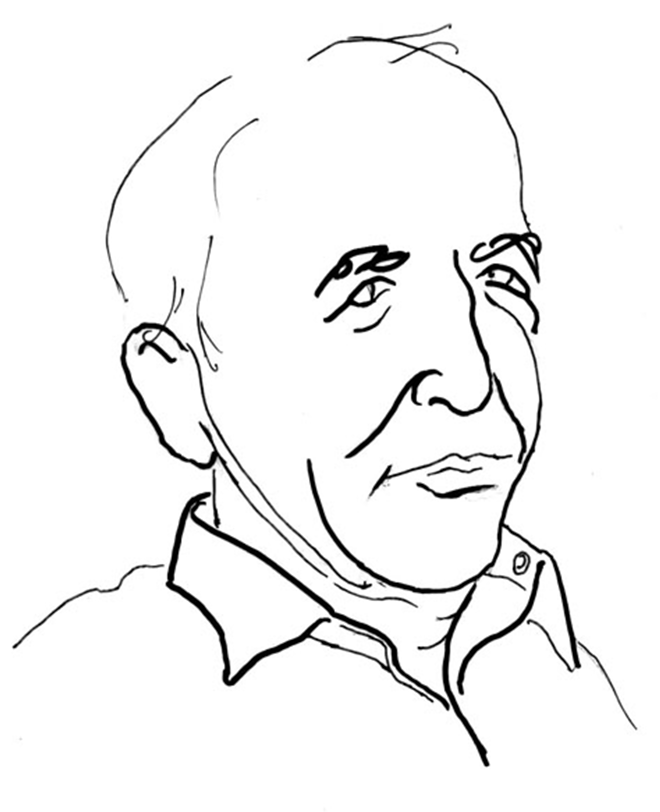For all the history of grief
An empty doorway and a maple leaf.
I’m all for being practical. It’s good to balance a checkbook, fix a leak, change the oil, save a bit of money. These aren’t my strong suits, but I support STEM courses in school. Two of our four children are research scientists, and another had a blended major at Eckerd College: Bioethics. (The fourth is an artist: Where did we go wrong?)
But today’s emphasis on STEM is founded on contempt for the humanities (impractical) and the arts (useless). House Republicans are pushing a bill to cut both the National Endowments for the Arts and the Humanities by 49 percent. Every individual’s different, but for a nation this is a recipe for disaster. The soul of a country is worth more than its GNP.
I think all American high school students should take a double major — STEM I, Science, Technology, Engineering and Mathematics — the four poles of the Sciences; and STEM II (Advanced STEM): Symmetry, Truth, Empathy and Meaning — the four pillars of the Arts. STEM I courses are what you need to get a job. STEM II courses are what you need to live a life.
Symmetry is another word for beauty: the beauty of buildings, trees, people, thought. Symmetry is balance: an osprey riding the wind, a child learning to walk, Michelangelo’s “David,” Renoir’s “The Bathers,” Frost’s “Stopping By Woods on a Snowy Evening,” Frank Lloyd Wright’s Fallingwater. An appreciation of symmetry will lead even the poorest students to grow in that direction: toward a better house, a healthier body, an interest in the arts to widen their perspective. Even a simple dinner — as Jeanne continually shows our children and friends — can be a work of art. Symmetry — beauty and balance — is a goal we should aim for in all aspects of our daily lives. We don’t have to be a nut about this, either: we’re human, with problems and restrictions — but taking aim is possible.
Truth is the deeper value that lies beyond facts. It’s what Prince Andrei sees in War and Peace as he lies wounded at Austerlitz with bodies all around him, and stares at the immense blue sky. The fact that we believe in different gods can hide the truth that we’re all brothers and sisters under the skin. Truth is connected to symmetry: we can have money, power, “success,” but, in truth, live a badly unbalanced life. “There is a value underneath / The gold and silver in my teeth,” wrote W. D. Snodgrass in his poem, “April Inventory.” We see facts, but we feel truths; and a great novel will show us more truth than the day’s newspaper.
Empathy is the use of our imagination to understand the feelings of other people — to, for example, not see the Vietnamese as “gooks,” immigrants as drug smugglers, or the poor as lazy immoral slackers. All of the arts, particularly poetry, strengthen our imaginations, helping us to be not only Americans, but fully human citizens of the world. “We must love one another or die,” W. H. Auden wrote in “September 1, 1939.” (He later, trying to be factual as well as truthful, changed it to read, “We must love one another and die.” )
Meaning is central to STEM II in a tricky away. “Why don’t you say what you mean?” my dad would say when reading a poem of mine. The arts — often criticized for having no meaning — aren’t sermons: rather, they lean toward meaning. They speak to the unanswerable questions, assuring us that our lives have meaning. They share with religion — without religion’s divisiveness — the idea that life is a miraculous gift, whether it’s Van Gogh’s sunflowers, Beethoven’s 5th, Shakespeare’s King Lear, or Emily Dickinson’s “A narrow Fellow in the Grass.”
The push toward STEM I has corresponded with the decline of the American character, which was once generous, open, bold, bright, and unafraid. Let’s give the arts — and ourselves — another chance. I think we’ll find that STEM I may help you get a job, but STEM II will help you hold it.
For love
The leaning grasses and two lights above the sea —
—Both quotes from “Ars Poetica” by Archibald MacLeish (1892-1982)


